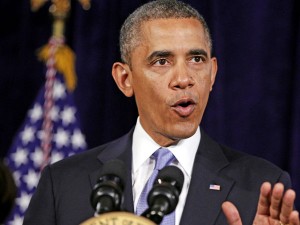US to build new trade rules in Asia-Pacific
NUSA DUA, Indonesia—US efforts to shape far-reaching new trade rules for the Asia-Pacific are set to dominate a leaders’ summit in Bali starting Monday, amid concerns they are too ambitious and risk adding to regional tensions.
US President Barack Obama’s administration is planning to use the Asia-Pacific Economic Cooperation (Apec) gathering to try to secure a year-end agreement for a giant free-trade pact, which would include 12 diverse countries but significantly not China.
While proponents of the Trans-Pacific Partnership (TPP) insist it will create “gold-standard” rules to deal with 21st century economic issues, such as intellectual property, analysts caution it will likely fail to achieve targets and potentially alienate China.
“If the United States gets this concluded in a significant way, they will have taken the lead in setting up the trade rules [for the region],” Jayant Menon, an expert on economic integration at Asian Development Bank, told Agence France-Presse.
“[But] if you judge it by the gold standard, I think this will only be a bronze.”
Obama has said he wants a deal on the TPP by the end of the year.
His administration has earmarked the TPP as one of the most important trade tools for his strategic “pivot” to Asia-Pacific, and negotiations for the pact are expected to remain a top US priority in Bali.
China is looking to push ahead with a rival megatrade pact grouping 16 countries in the region, potentially opening up a new front in the struggle between the world powers for dominance in the Asia-Pacific.
“There is the real risk of geopolitics spilling over into commerce and integration in East Asia in ways that will damage and diminish economic benefits,” Shiro Armstrong, an economist at Australian National University, wrote in the East Asia Forum.
Chinese President Xi Jinping provided a timely reminder of China’s growing influence in the region with a successful trip to Jakarta ahead of Apec. He oversaw trade deals between the two countries worth $28 billion.
China initially expressed strong opposition to the TPP, viewing it as another US containment tool, although it has recently adopted a slightly more accepting tone.
The TPP would bring together the economies of the United States, Australia, New Zealand, Japan, Singapore, Malaysia, Brunei, Vietnam, Chile, Canada, Mexico and Peru—accounting for about one third of global economic output.
